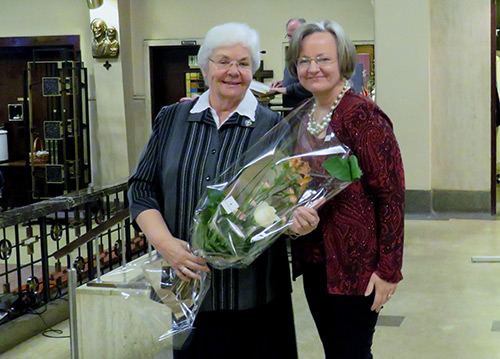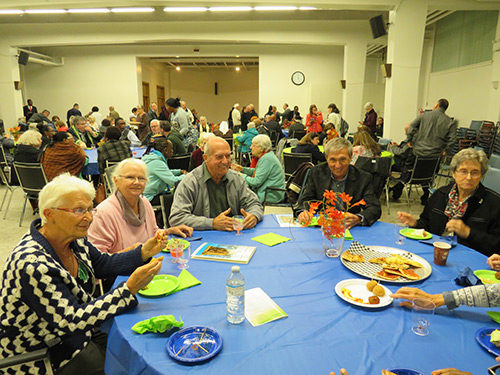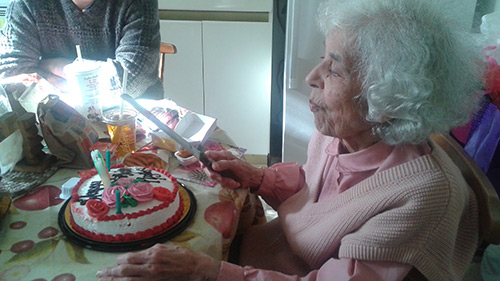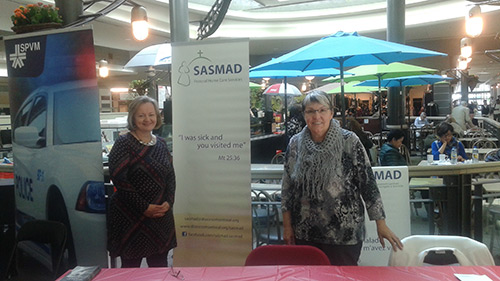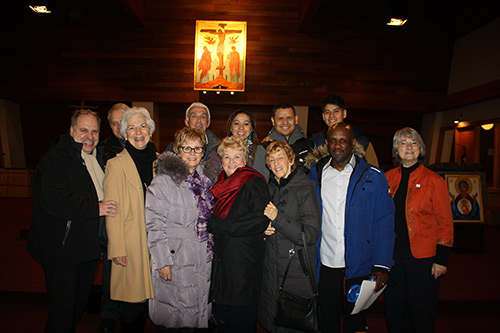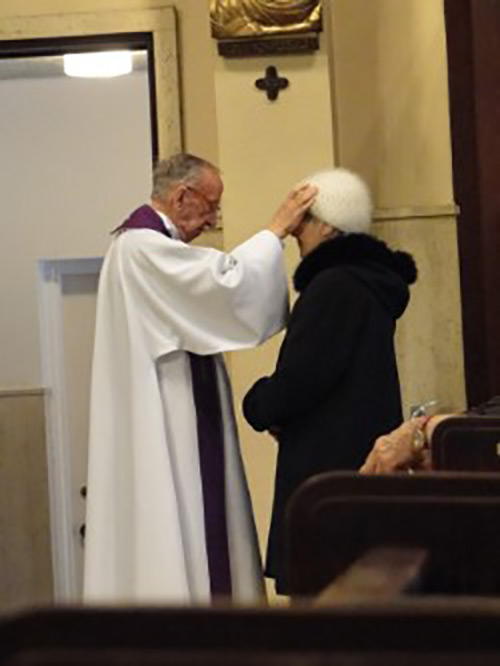Service d’accompagnement spirituel des personnes malades et âgées à domicile (SASMAD)
Service to others is at the heart of a life of faith. What started off as a prompting of the Holy Spirit in the heart of a religious sister has blossomed into a service that reaches out to people who are sick or isolated throughout the greater Montreal area and beyond. In 1992, Sr. Madeleine St. Michel, a Religious Hospitaller of St. Joseph and a nurse who had worked for years in hospitals and home-based palliative care, saw a need developing as a shift happened in health care. While hospitals were working toward more ambulatory care, shorter hospital stays, and more convalescence at home, she recognized that the good pastoral care that people could receive in hospital would often end or change once they were sent home. Often left on their own to wrestle with questions of vulnerability and grief that came from dealing with a serious health issue, Sr. Madeleine began to think about how these people could be accompanied at home. With a small group of volunteers, she began to receive names, through a local pastor, of people who would appreciate a home visit. Thus la Service d’accompagnement spirituel des personnes malades et âgées à domicile (SASMAD) was born. In 1999, after Sr. Madeleine had knocked on the doors of many religious communities for financial donations, the foundation Les Amis de Jeanne Mance was put in place to finance the project. Links and support from the Archdiocese of Montreal came in the years to come. Presently SASMAD provides visits for over seventeen hundred beneficiaries in more than ten different languages through a community of over four hundred trained volunteers.
As part of the comprehensive training that is offered to volunteers before they embark on this ministry, we take the time to pray and meditate with the Gospel message, which is foundational to what we do. Matthew 25:31–46 grounds us in modelling ourselves on Christ’s own actions and recognizing the mystical connection that happens when we visit the prisoner, clothe the naked, and feed the hungry. The act of visiting the sick is not only a response to Jesus’s desire that his followers be present to those who are most vulnerable; it is also an encounter with Christ himself. The volunteer’s presence to others is an expression of Christ’s own love for those being visited. The encounter is a holy one.
Volunteers, who come mostly from Roman Catholic parishes in and around Montreal, are led to this ministry by a desire to live out Jesus’s request that we visit, feed, and clothe. They want to act on this desire to reach out and serve. Sometimes volunteers who were geographically far from their own family members at the end of their lives are motivated to give their time to those in their own community who might appreciate a gesture of love and care. We are, after all, one body.
As part of the volunteer training, the distinction is made between spiritual accompaniment (which all beneficiaries receive) and religious accompaniment (which is provided if the beneficiary requests it). Spiritual accompaniment, as SASMAD sees it, is a consistent, compassionate presence to the other person, opening our hearts to care and to listen for the big questions that come up in a person’s life (Why am I still here when God ‘took’ my spouse? What does my life mean now that I can no longer do what I used to do?) At the person’s request, religious accompaniment comes when they already have a religious connection and when strengthening it will help them to heal and walk through their time of difficulty. This may involve reading Scripture with them, bringing them the Holy Eucharist, praying with them, and connecting them with their own faith community if they have become disconnected through their illness. As Catholics, we visit people of all faiths and those who have no faith. We walk with them, we listen to what is happening in their lives, and we hold space for their questions, their grief, and their hope.
While for many years our main source of referral was the local parish, as we have branched out into serving the local communities we have established meaningful connections with different community health organizations and community groups. Initially, there is often a bit of hesitation when we explain that we are based on and supported by the Catholic Church. But as relationships grow, the trust builds, and they understand that our aim is not to proselytize but to be present to those who are most vulnerable. Our volunteers offer something that is in very short supply: a compassionate, listening ear and the gift of their time. Our mission to help and support lonely, vulnerable people is one we share with our community partners.
Results in this kind of ministry are hard to measure, but the most important outcome of our service seems to be connection. The person who is socially isolated, anxious, or struggling with mental or physical health issues has a connection to someone who will faithfully visit weekly to talk about whatever the person wants to talk about. Sometimes, by bringing Holy Communion, or by praying or reading Scripture together, there is a strengthened connection to faith and community. Often it is through listening and allowing difficult topics to surface that there is a deeper sense of connection to self, to the world, and to each other.
The relationships that are forged through these weekly visits are gifts to both the person being visited and to the volunteer. Real connections are made, sometimes lasting for years. Walking with those we visit through their last days is a difficult privilege we are sometimes given. Many times there is a bond of love that forms between one another through lots of shared laughter and a deep sense of care and respect. By reaching out with the heart of Christ, we are entering into a place where comfort, care, and transformation are always possible.
The Greek word ‘diakonia’ expresses the act of being called to serve. The Cardus Religious Freedom Institute’s Diakonia Project presents a series of eight different initiatives in which Canadians of faith serve their community. This highlights a core aspect of religious freedom: the freedom to live out one’s deepest held beliefs through concrete actions that serve the common good.
[This article has been written by a member of the faith community that supports this initiative. All views, opinions, and theological viewpoints are those of the author.]

